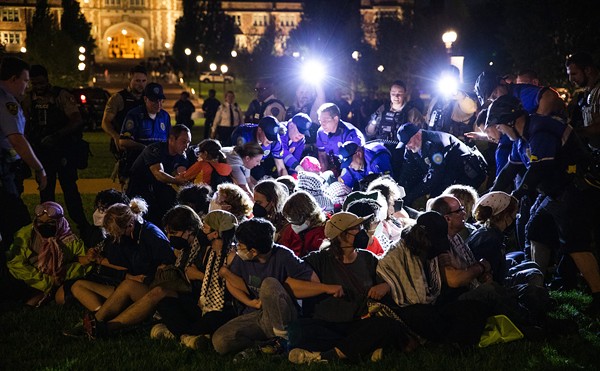
McGovern looked tired and withdrawn. He'd lost his Senate seat in South Dakota three years before, swept away in Ronald Reagan's Republican tidal wave. The passionate anti-war insurgency he led as the Democratic standard bearer to unseat Richard Nixon in 1972 seemed a lifetime ago.
McGovern barely touched the king salmon, focusing instead on some stiff vodka cocktails. The talk turned to politics, the 1980 loss and his recent stint as a history professor at the University of New Orleans, where he'd replaced historian Stephen Ambrose. As evening wore on, he reflected about his presidential campaign, an inglorious ordeal that culminated in one of the most devastating electoral drubbings in American history.
When, inevitably, the subject of his short-lived running mate, Thomas Eagleton, arose, McGovern, by now well into his third double vodka, cast an irritated glance down at the dark expanse of the Cook Inlet and almost shouted, "I asked the sonofabitch whether he had any skeletons in his closet, and he said 'no.' The sonofabitch told me 'no.'"
The skeleton the man from Mitchell, South Dakota, was referring to was the campaign-derailing revelation that Eagleton, who died Sunday at the age of 77, had been hospitalized three times for nervous exhaustion in the 1960s, and twice had undergone electroshock therapy.
When the controversy erupted a few days after McGovern tapped the Missouri senator as his running mate on July 13, 1972, McGovern defended Eagleton, uttering the memorable words "I'm behind him 1,000 percent."
Despite the vote of confidence, the McGovern-Eagleton ticket lasted just nineteen days. Party pressure and Republican ridicule forced McGovern to dump Eagleton and replace him with Sargent Shriver, a former director of the Peace Corps. The hastily reassembled team went on to lose every state in the union except Massachusetts.
The passage of nearly eleven years had done little to diminish the palpable anger McGovern displayed that spring evening in Alaska. "He out-and-out lied to me," fumed the ex-senator. "I still don't know why he didn't tell me."
If he had, I asked, what would you have done?
"I'm sure I'd have gone with someone else," McGovern curtly replied.
In November 2005, speaking in Washington, D.C., in tribute to the late Wisconsin senator and Earth Day founder Gaylord Nelson, McGovern said he probably made a mistake dropping Eagleton from the ticket.
"Tom and I ran into a little snag back in 1972 that in light of my much advanced wisdom today, I think was vastly exaggerated," said McGovern, who'd made a similar mea culpa in 2003 during an 80th birthday toast to Nelson's wife, Carrie Lee.
Eagleton attended the tribute, held in the Hart Senate Office Building, and later noted to the audience that the program called for back-to-back speeches from McGovern and himself.
"McGovern-Eagleton," he said. Then, for emphasis, he repeated it: "McGovern-Eagleton."





